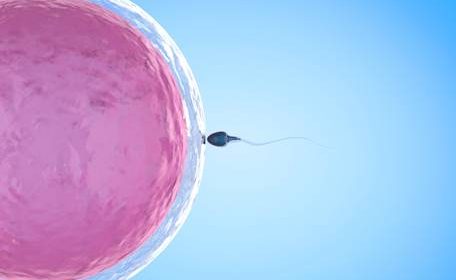10 facts about fertility

With January coming to an end and a new year – and decade – well upon us, people around the country may be thinking about starting their family or growing their existing one.
It’s important to remember that everyone’s fertility journey is different. But when planning for the future, there’s a number of important fertility facts to keep in mind.
1 Fertility problems are common and can vary
Infertility is a common problem affecting around one in six couples in Ireland; it can be caused by a single problem or a number of issues. Often patients don’t fully appreciate the extent of the potential causes, especially age, that may be linked to them failing to conceive.
Three common reasons in women include damage to fallopian tubes (tubal infertility), cervical causes and ovulation disorders.
But there are many reasons which must be investigated.
2 Male fertility is linked to sperm – loose boxers and cool temperatures help
In about four out of 10 couples, a condition which might reduce fertility is found in the male.
The most common cause of male infertility is a problem with sperm. Sperm may be low in number or may not be as good at swimming as they should be.
Of course, there are many factors that can impact this, but we know that sperm are best produced in the cool.
The ideal temperature for sperm is 35ºC, so to maximise sperm count, loose boxers and cool baths can help. There’s lots of evidence to suggest men who work outside have higher sperm counts than those with a desk job.
3 Your New Year’s resolutions may help boost fertility
January is a great time to kick-start – or get back into – healthier habits. And these healthy changes can also help fertility.
Being overweight massively impacts on fertility because it causes hormonal imbalances and problems with ovulation.
Equally, if someone is underweight their body knows it’s not in a good place to reproduce so it could also stop ovulating.
A BMI range of 20 to 25 is optimum for getting pregnant, so healthier habits, like a varied diet and exercise, can help boost fertility.
4 Excessive alcohol consumption and smoking can impact your chance of pregnancy
When it comes to smoking, we know that carbon monoxide reduces the oxygen supply to a woman’s eggs and rots them. Additionally, smoking cuts the blood flow to the uterus and lowers sperm count and its quality.
Men and women will see an almost instant boost in fertility if they quit.
It’s also advisable to cut down on alcohol consumption, and to drink within the recommended weekly consumption guidelines.
5 The age-old issue of age and fertility
While technology and treatments have all improved greatly, age remains the biggest factor when it comes to infertility. In women fertility begins to decline at 30, with a significant drop at 35 and an even more significant drop by the time a woman reaches 40.
6 Egg-freezing can help preserve fertility
Whatever the reason might be to choose egg freezing, we know that it gives women more choice to preserve their fertility for the future – and with egg-quality and fertility decreasing with age, the younger it is done, the better the likely outcome.
7 Secondary infertility is on the rise
When a couple have their much-wanted baby, they often do not expect to have too much difficulty in achieving a second child.
But secondary infertility is on the rise in Ireland, mostly because of the increase in age of first-time mothers.
8 IVF treatments vary, so initial tests are vital
After an initial consultation at an IVF clinic, a full fertility assessment will be carried out on both partners, including blood tests and scans to establish if there are any obvious problems.
The tests are important and will offer crucial insights into the most appropriate treatment plan.
Depending on the patient, things can be relatively straightforward or complex. In some cases, more detailed investigation is required, and this can take longer.
9 Seek treatment for health issues that can impact fertility down the line
There are a number of conditions that can impact on fertility down the line.
For example, endometriosis is common, affecting one in 10 women in Ireland. It is a condition that causes painful or heavy periods, and may also lead to difficulties getting pregnant.
10 Your mental health is important
Finally, with lots of talk of the physiological aspects of fertility and IVF, we can often forget about mental health.
We know, however, that fertility problems and IVF treatment can take a toll on mental health. Feelings of stress and anxiety are normal, and most people going through the process have already had issues conceiving, which will have impacted their mental health.
It’s important to acknowledge these feelings, understand that it is okay not to feel okay, and to talk to friends, family and/or a mental health professional.
Dr Bart Kuczera is Fertility Expert at Beacon CARE Fertility
Source: Read Full Article